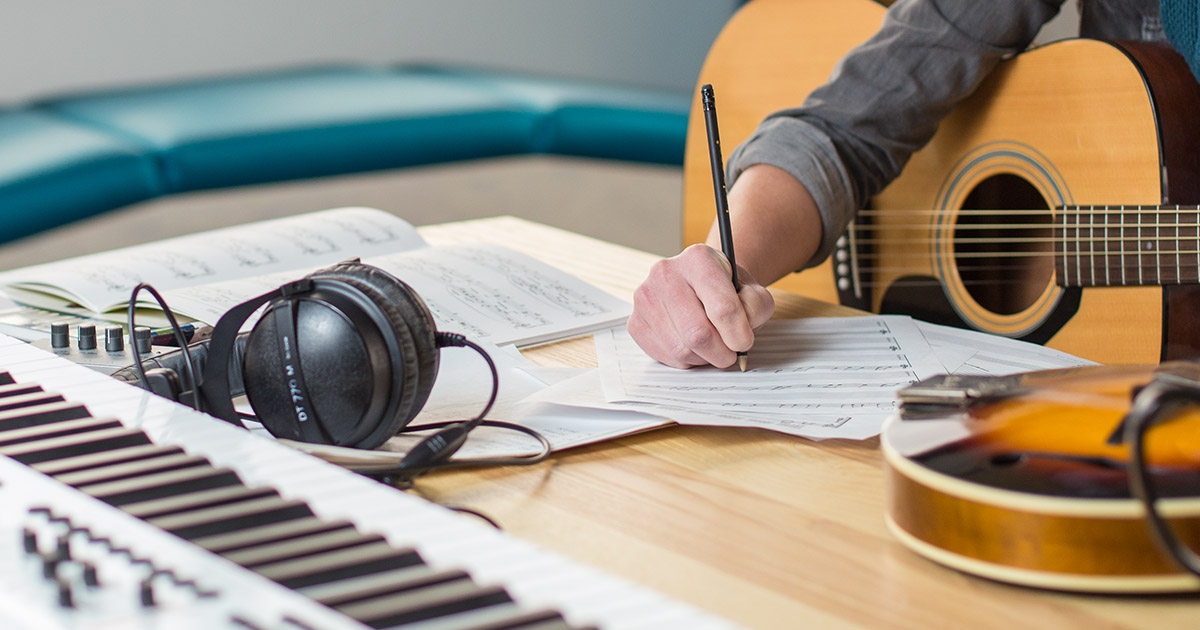Can you actually read and write the notes of your songs?
Some of the most successful composers never could – and many today still can’t read a note of music.
So, is there a real disadvantage in not being able to read and write music?
The answer is yes. Let me say straight away, not being able to sight-read will not disqualify you from being a successful songwriter – but it will present you with a handicap over those who can.
Firstly, writing music gives you an immediate advantage in being able to create a top-line or lead sheet which you can use quickly to register the copyright in your song.
Secondly, writing out the music will help you in ways you cannot imagine especially in the layout of your song – rather like reading a road map – fields, signs timing, and direction fall into place in a more convenient way.
Yes, I know you can buy software that will write out the music for you using midi on a keyboard or guitar, but think of the convenience of being able to write out a piece of music straight to the manuscript as soon as an original melody runs through your head.
At any moment a brilliant tune may come to you – and minutes later it may be lost forever.
Interestingly, understanding how to read music is not difficult at all – in fact, it’s as simple as ABC.
If you can read the alphabet, you can read music. Notes appear on five horizontal lines called a “stave” or “staff” Each note falls directly on one of the lines, or in the spaces. Starting with the simplest of keys – C major, the next note above C is D then E-F-G-A-B-C. You’re simply following the alphabet.
Once you get to “G” your next note above is “A” and so on. You see, in music the letters run from A to G only, that’s it.
The only other notes are the “in betweens” sharps or flats (b) which mostly appear in keys other than C major. Sounds easy? It is. Familiarize yourself with all the notes and the keys and you’ll be reading music in no time.
Those who regularly read and write often begin to see amazing possibilities in other areas of music – such as arranging, harmony, chord structure, counterpoint, and even orchestration. You see, if you have creative ability, to begin with, chances are these are areas you were meant to move into. Once you start your mind working the possibilities in creative music are endless.

Comments are closed.